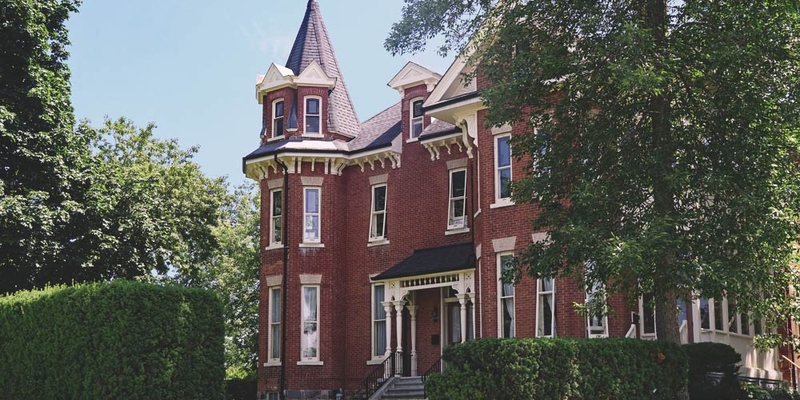
If you are not redirected within 30 seconds, please click here to continue.
Samedi: 10h – 16h HAE

If you are not redirected within 30 seconds, please click here to continue.
If you are not redirected within 30 seconds, please click here to continue.
Heritage homes: what buying one means for your home insurance

Owning a heritage home can bring about a unique sense of community and national pride. Living in a historic building that once housed notable Canadians or that’s simply preserved for its rare architectural design means owning a piece of Canadian history.
With that notoriety comes a responsibility to keep your home in good shape according to the standards of your municipal or provincial government — not to mention an insurance premium that will likely reflect your home’s age and repair cost.
Why heritage home insurance premiums can be higher
According to Anne Marie Thomas, director, consumer, and industry relations at the Insurance Bureau of Canada, “Insurance on heritage homes can be more expensive.”
Because the property has a heritage designation, damage to your home will have to be repaired with materials that are specific to the original designation. “These materials can be more expensive and difficult to acquire,” says Thomas. For example, if your home has old crown moldings on its interior, and they become damaged, a contractor can’t exactly pick up materials from the local hardware store to conduct the repair. So, sourcing the materials to rebuild part of your heritage home may contribute to a higher annual premium.
When shopping for home insurance, the IBC’s heritage property risk prospectus can help you organize details about your home that insurance providers need for an accurate quote.
Ensuring your heritage home is well-maintained and thoughtfully renovated not only sustains its authenticity but offers the opportunity to lower your home insurance premium. However, while upgrading your home can mitigate risk in the eyes of your insurance provider, there may be some limitations around what structural changes can be made in order to adequately uphold your home’s heritage.
What renovations can be made on a heritage home?
When it comes to making physical renovations on your heritage home, be advised that you may not have free reign. “That’s a conversation the heritage property owner has to have with the town or city council,” says Thomas. There may be some limitations on what modifications can be made in the name of authenticity, particularly on the exterior of the home.
For example, there may be only a few colours to choose from if you’re considering painting the front of your home. “In some municipalities, it gets down to that level,” says Thomas. So even if you plan on making bigger renovations to your home to improve safety or reduce risk of damage and injury, it’s possible some changes may not be approved if they interfere with the integrity of the original design.
The last thing you’d want is to have to undo any changes you’ve made, wasting both time and money, which could be the case without consulting your local government body.
How can I lower my heritage home insurance premium?
Comparing home insurance rates is your first step to ensure you’re getting the best rate for your specific home. If increasing one or more of your deductibles is an option, you can always see what you can afford in that respect. Otherwise, reducing the risk of damage in your home may also aid in lowering your annual premium.
To reduce your chances of making a claim against your home insurance policy, the IBC recommends:
- Installing smoke detectors, as well as burglar and fire alarms
- Following the relevant building codes for your property
- Replacing knob-and-tube electrical wiring with modern wiring
- Upgrading your roof and heating and plumbing systems (e.g., gas or electric heat and copper plumbing with sewer back flow valves work well)
- Proof of a proper firebreak (especially for semi-detached and row houses)
- Inspecting and maintaining your oil tank, fireplace, or wood burning stove
Keeping accurate records of any bylaws, maintenance, or renovations pertaining to your heritage home, as well as the historic classification of your property can come in handy. Even documenting your home’s unique physical characteristics can help your insurance provider accurately measure the replacement cost of the building.
These records could help inform your insurance premium, so it’s a good idea to store them somewhere other than the insured home, in case of an unpredictable loss.
Don't waste time calling around for home insurance
Use RATESDOTCA to shop around and compare multiple quotes at the same time.
Finding the best home insurance coverage has never been so easy!
Get money-saving tips in your inbox.
Stay on top of personal finance tips from our money experts!










